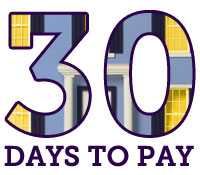In this guide
Stamp Duty Calculator
How much will I have to pay?
You are buying a property for £125,000 or less,
so will not have to pay stamp duty!
You are buying a property for between £125,000 and £250,000
As a first time buyer, you will not have to pay any Stamp Duty
You are buying a property for between £125,000 and £250,000
As you aren't a first time buyer, you will have to pay % in Stamp Duty, so £
You are buying a property for between £250,000 and £500,000
You will have to pay % in Stamp Duty, so £
You are buying a property for between £500,000 and £1,000,000
You will have to pay % in Stamp Duty, so £
You are buying a property for more than £1,000,000
so you will have to pay % in Stamp Duty, so £
What is a First Time Buyer?
The Government defines a first time buyer as someone who has "not previously purchased an interest (in a property) or its equivalent anywhere in the world".
If a property has been purchased by two or more people and at least one is already a homeowner, then stamp duty will have to be paid on properties worth between £125,000 and £250,000, at 1%.
You also need to be buying a property as your main residence, so the exemption does not apply to investment properties. If you've inherited, but not bought, a property you will NOT be classed as a first time buyer. Much like self-assessment tax returns, a buyer will declare whether or not they own another property but the Treasury says that HM Revenue and Customs can investigate your affairs.
What is stamp duty?
Stamp duty land tax - to give it its full name - is a lump-sum tax that anyone buying a property or land costing more than a set amount has to pay. The rate you'll pay the tax at varies based on the price of the property and the type, though we will focus on residential, rather than commercial, buildings.

However, whereas with every other tax, you only pay higher rates on amounts above a threshold, here you pay it on the whole amount.
This means that if you buy a property for £125,001 - £1 over the lowest threshold - then you will pay the 1% rate on the full amount - a total of £1250.01 - rather than just on the £1 extra (ie pay £125,000 and stamp duty's NOTHING).
Read more in Martins blog: The UK's worst tax: stamp duty.
For details on exceptions, such as ‘Disadvantaged Areas Relief' or zero-carbon homes, see the DirectGov website.
What are the rate boundaries?
As the price you pay for a new property increases, so do the rates of stamp duty. You pay a percentage of the cost, and the rate payable leaps up at a set of thresholds.
Purchase price |
Stamp duty rate |
|
|---|---|---|
| Up to £125,000 |
0%
|
|
| £125,000 - £250,000 |
0% (first time buyers until 24 March 2012) 1% (everyone else) |
|
| £250,000 - £500,000 |
3%
|
|
| £500,000 - £1,000,000 |
4%
|
|
| £1,000,000 + |
5% |
|
| Correct at July 2011 | ||
The precise boundary for hitting a new tier is the first penny of that tier. So, though it's a tad unlikely, if you were to pay £500,000.01, then you'd face 4% stamp duty (£20,000), but pay one penny less at £500,000 and stamp duty will be 3% (so £15,000) - an illustration of the absurdity of this tax's structure.
To see rates for past years, take a look at the HMRC website.
The first-time buyer stamp duty holiday
 Until 24 March 2012, first time buyers will be exempt from paying the first tier of stamp duty
Until 24 March 2012, first time buyers will be exempt from paying the first tier of stamp duty
That means that if you are a first time buyer (see below for the definition), and pay up to £250,000 for a property, you'll pay no stamp duty at all if it's purchased before 24 March 2012.
However, if you are not a first time buyer, you'll still have to pay the 1% rate between £125,000 and £250,000. Plus first time buyers paying more than £250,000 for a property will pay the normal stamp duty rates.
Don't miss out on updates to this guide Get MoneySavingExpert's free, spam-free weekly email full of guides & loopholes
Am I a first time buyer?
In a nutshell...
To get the exemption, none of the buyers can ever
have bought or owned any property before

The key is couples (or groups of friends) must all be newbies to home ownership. If anyone has owned any home - leasehold or freehold - anywhere in the world, the exemption doesn't apply and you must pay stamp duty at 1% for purchases between £125,000 and £250,000.
If you inherited a house, then you are logged as having owned property before, so won't benefit from this stamp duty holiday.
You must also be buying a property as your main residence, so the exemption doesn't apply to investment properties. Much like self-assessment tax returns, a buyer should declare it if they own another home and the Treasury says that HM Revenue and Customs can investigate your affairs.
How do I pay stamp duty?
The crucial thing to know is that you have 30 days from the date of completion (when all the contracts are signed and dated - read House Buying guide for full timeline) to pay your stamp duty bill. Take longer and you could face a fine and possibly interest on top, so don't!

In reality, your solicitor will probably sort this out and push you to pay the bill straight away. It's also likely to guide you through the process, but in case it doesn't...
-
Find your Unique Transaction Reference Number (UTRN). It's 11 numbers long and found on either your submission receipt if you have filed online, or on your paper SDLT return.
Pay by online or phone banking? Just as you might move money to a friend's account, you can call up your bank, use HMRC's bank details, and pay the bill. This normally takes three working days, so take this into account and don't miss the deadline.
Other ways to pay. If you don't have online or phone banking set up, you can pay by card over the web (though there's a charge for credit cards), giro in most banks or by cheque in Post Office branches or post - though the last three options require you to present a payslip.
Cut Your Housing Costs Checklist
Can I add stamp duty to my mortgage?
The simple answer here is that it is best that you don't, but many people find that they have to.
Doing this could affect your Loan-to-Value ratio (LTV) - the measure of how much of a property's value you are borrowing - for the worse.
To add the cost of stamp duty to your loan is a case of borrowing more when the mortgage is taken out. So, say you needed a £220,000 mortgage to purchase a house costing £300,000, but wanted to add the stamp duty, you'd need to request borrowing of £229,000.
There are two main things to consider here. Firstly, as mortgages tend to be taken out over a long term (25 years or more), that's normally how long the stamp duty borrowing will last too. Over a 25 year term, at a rate of 5%, that extra £9,000 borrowing will cost around £7,000 in interest, so it's vital to be aware of the cost.
Secondly, this could affect your Loan-to-Value ratio (LTV) - the measure of how much of a property's value you are borrowing. The most competitive deals require a maximum LTV of 75% - yet in the example above, adding the stamp duty would push you from 73% to 76%, so be careful - speak to a whole-of-market mortgage broker.
Is it the same all across the UK?
For once, yes! The same arrangements and rates apply for homebuyers in England, Wales, Scotland and Northern Ireland.
Discuss this Q&A; and Calc
Spotted out of date info/broken links?
Email brokenlink@moneysavingexpert.com to let us know
Always double check the product details before signing up to them

LINKS THAT HELP THIS SITE (all have a * in above article)
(this has no impact on product or pick - see explanation below)
N/a
Explanation (of * links)
How this site is funded. Two types of contacts are listed. The first, which all have a * within the main body of the articles, help MoneySavingExpert.com stay free to use, as they're 'affiliated links' which invisibly take you usually via affiliate linkage or commercial money sites, which then pay this site. It's worth noting this means the third party used may be named on any credit agreements. The second type doesn't help and therefore doesn't have a *.You shouldn't notice any difference, the links don't impact the product at all and the editorial line (the things we write) is NEVER impacted by the revenue - we aim to look at all available products. If it isn't possible to get an affiliate link for the best product, it is still included in exactly the same way. For more details read how this site is financed.
LINKS THAT DON'T HELP THIS SITE
(please only use if necessary)
No * Link Available: DirectGov , HMRC
Duplicate links of the * links above for the sake of transparency, but this version doesn't help MoneySavingExpert.com:
N/a

 The FREE
The FREE The first-time buyers' FREE
The first-time buyers' FREE























